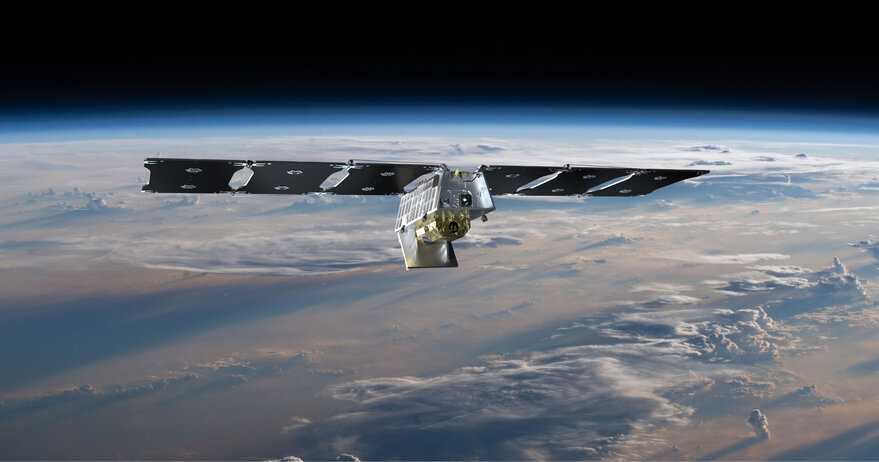SAN FRANCISCO – While constructing its own climate-monitoring constellation, Silicon startup Muon Space is earning more than $60 million designing, building and operating remote-sensing satellites for customers.
The 10 satellites under contract, ranging in size from 150 to 500 kilograms, are scheduled to launch in 2025 and 2026 for commercial, government and nonprofit organizations.
Muon Space CEO and co-founder Jonny Dyer declined to identify the customers. “We’ll let them take the lead on sharing that information if and when they would like to,” Dyer told SpaceNews by email.
Muon Space launched its first satellite in June to demonstrate Muon Halo, the company’s integrated hardware and software platform. A second Muon Space satellite, launched March 4 on the SpaceX Transporter-10 rideshare flight, is a prototype weather satellite for the U.S. Air Force Life Cycle Management Center Weather Systems Branch and the Defense Innovation Unit.
Space as a Service
Muon Space developed Muon Halo for customers seeking space-based data who did not have the expertise or desire to develop spacecraft, establish ground networks or handle data processing.
“A big selling point for many customers has been our standard process of developing a high-fidelity digital twin of their system,” Dyer said. The digital twin then “becomes the anchor for all the downstream systems engineering, integration and on-orbit operations optimization that happens through a mission lifecycle.”
Selling end-to-end constellation services has been part of Muon Space’s plan since the company was founded in Mountain View, California, in 2021.
Some Muon Space co-founders, who met while working on the Environmental Defense Fund’s MethaneSat, “believed that a holistic, mission-oriented product offering coupled with advances in technology and reductions in launch prices provided a big opportunity to enable a new class of commercial missions,” Dyer said.
Formulation to Operations
Early customers paid Muon Space to formulate constellation plans.
“We have been successful in growing our customer base and expanding many of them into build and operations phases,” Dyer said. He attributed the firm’s success in attracting and retaining customers to its focus on reliability, its core hardware and software, and Muon Space’s skilled workforce.
Muon Space has contracts to provide Earth-observation data to the U.S. Air Force and the U.S. Space Force. The National Reconnaissance Office also tapped Muon Space to provide multispectral electro-optical and infrared data from its future climate-monitoring constellation.
In a 2022 Series A funding round, Muon Space raised $25 million. The company also announced a $10 million seed round in 2021.
Related
Read the original article here



